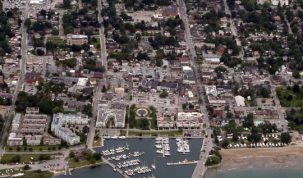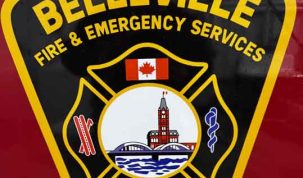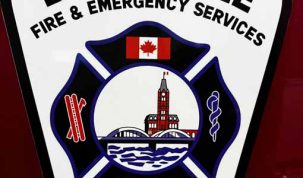(Today’s Northumberland file photo)
Mayor Lucas Cleveland said he’s looking forward to learning more about the strong mayor powers the province has granted to the Town of Cobourg.
Earlier this week, the Province of Ontario granted strong mayor powers to 169 additional municipalities effective May 1, 2025 to help deliver on provincial priorities such as building more homes, transit and other infrastructure.
Cobourg, Port Hope, Brighton and Trent Hills were among the municipalities added.
Cleveland said “I think it’s going to be a big learning opportunity for the community, for council, myself and the region as a whole.”
“There are a variety of powers that can be enacted. Powers can be delegated to staff, and the CAO. It is a very interesting piece of legislation, it is a very interesting tool in the tool belt. And just like every tool in the tool belt there is the right time and the right place for their tools.”
But added, “what’s more important to focus on, is this council and this staff, over the past two-and-a-half years have been taking the proactive steps to come in line with provincial and federal priorities without the need for strong mayor powers. In 2024, $30 million was granted to Cobourg with the town having a budget of $35 million.”
“And yet the province and feds have shown up with $30 million for this community because of the work of council and staff aligning with provincial and federal authorities.”
Ontario’s goal with enacting strong mayor powers is to streamline local governance and help ensure municipalities have the tools they need to reduce obstacles that can stand in the way of new housing and infrastructure development.
The powers would allow heads of council of single- and lower-tier municipalities with councils of six members or more to support shared provincial-municipal priorities, such as encouraging the approval of new housing and constructing and maintaining infrastructure to support housing, including roads and transit.
The province currently has 47 municipalities with these enhanced powers, which have helped to cut red tape and accelerate the delivery of key priorities in their communities. These enhanced powers come with increased accountability for heads of council and maintain essential checks and balances through the oversight of councillors.
Strong mayor powers and duties include:
· Choosing to appoint the municipality’s chief administrative officer.
· Hiring certain municipal department heads and establishing and re-organizing departments.
· Creating committees of council, assigning their functions and appointing the chairs and vice-chairs of committees of council.
· Proposing the municipal budget, which would be subject to council amendments and a separate head of council veto and council override process.
· Proposing certain municipal by-laws if the mayor is of the opinion that the proposed by-law could potentially advance a provincial priority identified in regulation. Council can pass these by-laws if more than one-third of all council members vote in favour.
· Vetoing certain by-laws if the head of council is of the opinion that all or part of the by-law could potentially interfere with a provincial priority.
· Bringing forward matters for council consideration if the head of council is of the opinion that considering the matter could potentially advance a provincial priority.
Certain strong mayor powers can only be used to support prescribed provincial priorities, which include building new homes and constructing and maintaining infrastructure like roads that support new and existing housing developments.
























